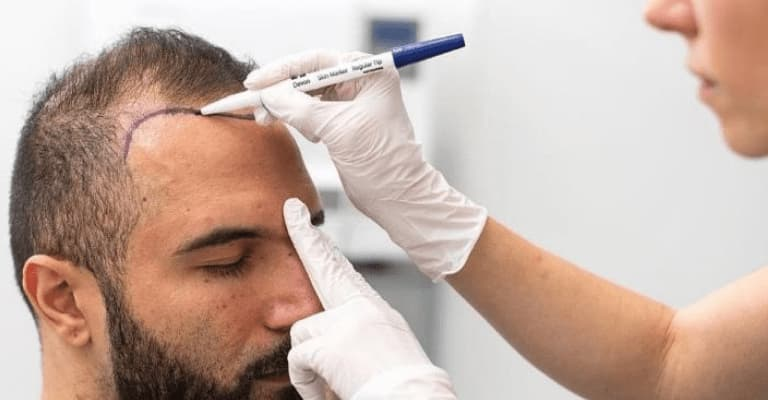Hair loss can be a challenging and distressing experience for many individuals. For those seeking to restore their hair, FUE Hair Transplants In Dubai hair transplant has become a popular and effective option. While FUE itself is a sophisticated and generally expensive procedure, many people wonder about the role of oral medications in supporting hair restoration and whether there are cost-free options available. In this article, we will explore FUE hair transplants, the oral medications commonly used, and some strategies to find cost-effective or free options for these medications.
Understanding FUE Hair Transplant
Follicular Unit Extraction (FUE) is a minimally invasive hair transplant technique that involves harvesting individual hair follicles from a donor area (usually the back or sides of the scalp) and transplanting them to areas with thinning or no hair. Unlike traditional hair transplant methods, such as Follicular Unit Transplantation (FUT), FUE does not require a linear incision, making it a preferred choice for many due to its reduced scarring and faster recovery time.

The Role of Oral Medications
Oral medications play a crucial role in both the preparation for hair transplant procedures and the maintenance of results post-transplant. The two most commonly used oral medications in hair restoration are Finasteride and Dutasteride.
Finasteride
Finasteride is a well-known medication prescribed for hair loss, particularly androgenetic alopecia (pattern baldness). It works by inhibiting the conversion of testosterone to dihydrotestosterone (DHT), a hormone that contributes to hair loss. By reducing DHT levels, Finasteride can slow or even reverse hair loss in many patients.
Benefits:
Proven to be effective in clinical studies.
Can help maintain the results of a hair transplant by preventing further hair loss.
Considerations:
It may take several months to see noticeable results.
Some individuals may experience side effects, including sexual dysfunction or mood changes.
Dutasteride
Dutasteride is another oral medication that works similarly to Finasteride, but it inhibits a broader range of enzymes involved in converting testosterone to DHT. This can make it a more potent option for some patients.
Benefits:
Can be effective in cases where Finasteride alone does not yield satisfactory results.
May provide more significant hair regrowth in certain individuals.
Considerations:
Higher cost and potentially more severe side effects compared to Finasteride.
Less commonly prescribed for hair loss than Finasteride.
Exploring Cost-Free Options
Finding oral medications like Finasteride and Dutasteride at no cost can be challenging, but there are several strategies you can employ to reduce your expenses or find assistance.
1. Patient Assistance Programs
Many pharmaceutical companies offer patient assistance programs that provide medications at no cost or at a reduced cost to individuals who meet specific eligibility criteria. These programs often require proof of income or financial need, but they can be a valuable resource for those struggling with the costs of medication.
2. Generic Alternatives
Generic versions of medications can be significantly cheaper than their brand-name counterparts. For instance, generic Finasteride is often available at a lower price compared to the branded version, Propecia. Be sure to consult your healthcare provider or pharmacist about the availability of generic options.
3. Discount Cards and Coupons
Discount cards and coupons are frequently available for prescription medications. Websites and apps offer these cards, which can provide substantial savings on medications. Additionally, some pharmacies offer their own discount programs.
4. Healthcare Provider Assistance
Discussing your financial concerns with your healthcare provider can be beneficial. They may be able to offer samples or suggest alternative treatment options that are more affordable. Some clinics and hospitals have financial assistance programs that can help with medication costs.
5. Online Pharmacies
Reputable online pharmacies can offer lower prices on medications. It is important to ensure that you are purchasing from a licensed and trustworthy source to avoid counterfeit products. Always verify the pharmacy’s credentials before making a purchase.
6. Government and Nonprofit Programs
In some regions, government and nonprofit organizations offer assistance with medication costs. These programs may be aimed at low-income individuals or those with specific medical conditions. Research local resources and see if you qualify for any available aid.
Conclusion
While the FUE hair transplant procedure can offer an effective solution for hair loss, the associated costs of oral medications like Finasteride and Dutasteride can be a concern. Exploring patient assistance programs, generic alternatives, discount cards, and other strategies can help manage these costs. It’s essential to work closely with your healthcare provider to find the most suitable and cost-effective treatment options for your hair restoration journey. By taking advantage of these resources, you can focus on achieving the best results from your FUE hair transplant without being burdened by excessive medication costs.
